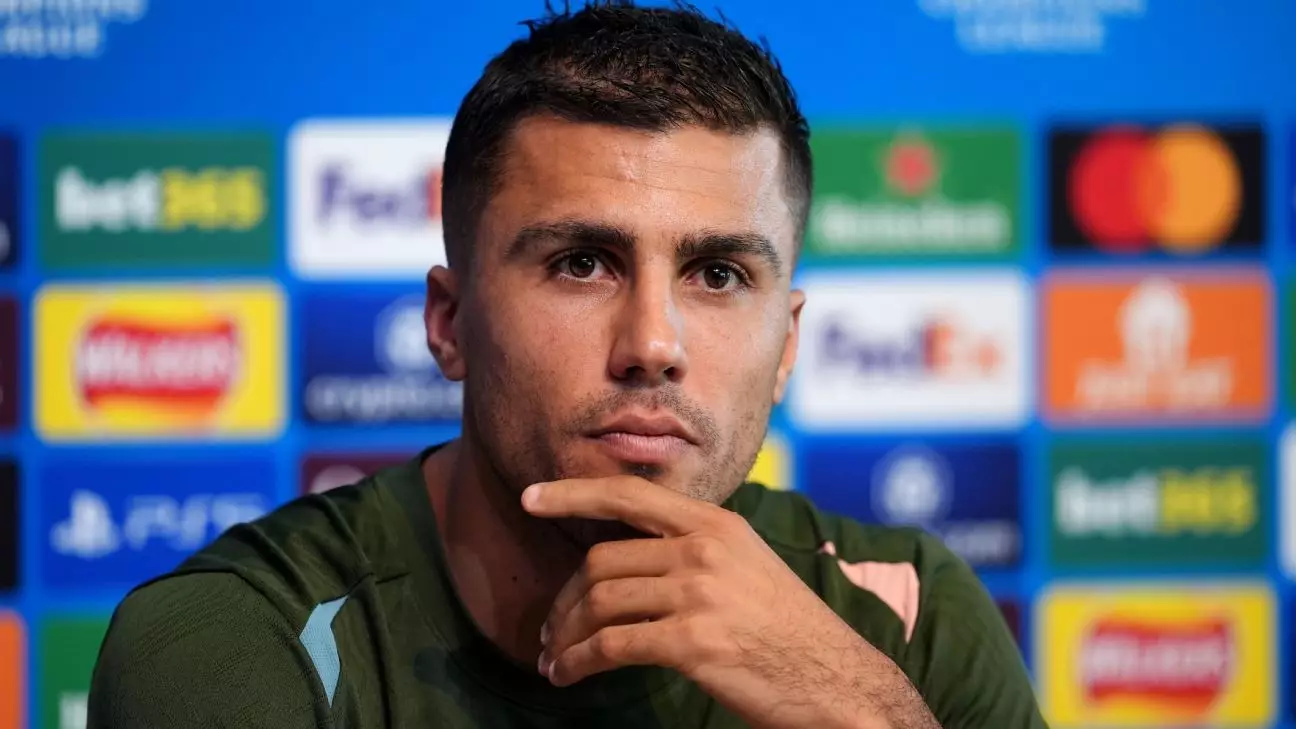As the world of professional football continues to evolve, the demands placed on players have reached unprecedented levels. Recent comments from Manchester City midfielder Rodri highlight a growing unease among athletes regarding their overwhelming workloads. After participating in a grueling 63 matches last season, Rodri has raised the alarm about the potential for players to resort to strike action as they grapple with an extended schedule that shows no signs of relief.
The modern football calendar has expanded significantly, driven by lucrative competitions like the Champions League and the newly restructured Club World Cup. This relentless pace leads to an alarming reality where top players may find themselves on the pitch for upwards of 80 or more matches in a single season. Rodri’s remarks resonate with a collective sentiment that players face an unsustainable physical burden, with many echoing his concerns about the feasibility of maintaining peak performance over such an exhausting schedule.
Rodri articulates a pressing issue that transcends individual concerns; these are the voices of the players as a collective. Footballers are increasingly aware that their bodies are not mere tools for profit; they are human beings whose well-being should be prioritized. With the rise of health awareness in sports, the conversation must shift from sheer competitiveness to advocating for player welfare. “Between 40 or 50 games a season, players can truly excel,” Rodri states, advocating for a realistic approach to scheduling that acknowledges the physical and mental toll on athletes.
The Risk of Diminished Performance
Excessive match exposure inevitably triggers performance decay. As Rodri notes, surpassing the 50-game threshold can lead to a notable drop in a player’s effectiveness, jeopardizing not only their personal career ambitions but also the integrity of the sport itself. Fans and clubs alike deserve to witness players at their best, rather than fatigued athletes barely able to keep pace with the demands of modern football.
World-Class Recognition Amidst Concerns
Despite these mounting worries, Rodri has achieved immense personal success, evident in his recent Ballon d’Or nomination. He has contributed significantly to Manchester City’s successes and propelled Spain to secure a prestigious international title. Yet, he remains steadfastly focused on his committed tenure at City, seemingly unperturbed by the flashing lights of the transfer market. His comments bring an intersection of personal accolades with a collective struggle that many players are facing today.
The possibility of player strikes is not merely a fantasy but a testament to the changing landscape of football. As Rodri suggests, athletes find themselves at a crossroads where they may need to advocate for their rights. A dialogue about reforming fixture congestion is crucial to preserving the beauty of the game while ensuring the well-being of its players. The time has come to listen to these concerns seriously and implement changes that reflect a more balanced approach to professional football. Failure to act could not only compromise player safety but also the future of the sport itself.

